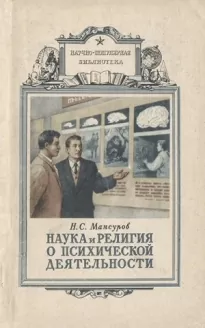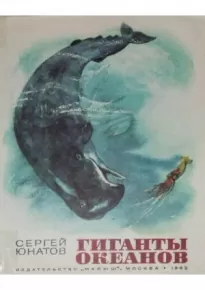Ingle, H. L. 1994. First among friends: George Fox and the creation of Quakerism. New York: Clarendon.
Jacob, F. 1977. Evolution and tinkering. Science 196:1161–1166.
James, W. 1902. The varieties of religious experience. New York: Longmans, Green.
Johnson, P. 1976. A history of Christianity. New York: Atheneum.
Kaplan, H., and K. Hill. 1985a. Hunting ability and reproductive success among male Ache foragers. Current Anthropology 26:131–133.
Kaplan, H., and K. Hill. 1985b. Food sharing among Ache foragers: Tests of explanatory hypotheses. Current Anthropology 26:223–245.
Kaplan, H., K. Hill, and A. Hurtado. 1984. Food sharing among the Ache hunter-gatherers of eastern Paraguay. Current Anthropology 25:113–115.
Katz, J. 1961. Tradition and crisis: Jewish society at the end of the middle ages. New York: Free Press of Glencoe.
Kelly, D. M. 1972. Why conservative churches are growing: A study in the sociology of religion. Macon, Ga.: Mercer University Press.
Kelly, R. C. 1985. The Nuer conquest. Ann Arbor: University of Michigan Press.
Kincaid, H. 1990. Assessing functional explanation in the social sciences. In PSA 90, ed. A. Fine, M. Forbes, and L. Wessels. Перепечатано в издании: Martin and MacIntyre 1994, 415–428.
Klir, G., U. St. Clair, and B. Juan. 1997. Fuzzy set theory: Foundations and applications. New York: Prentice Hall.
Knauft, B. M. 1991. Violence and sociality in human evolution. Current Anthropology 32:391–428.
Kobyliansky, E., S. Micle, M. Goldschmidt-Nathan, B. Arensburg, and H. Nathan. 1982. Jewish populations of the world: Genetic likenesses and differences. Annals of Human Biology 9:1–34.
Konner, M. 1999. Darwin’s truth, Jefferson’s vision. American Prospect 45:30–38.
Kosko, B. 1993. Fuzzy thinking. New York: Hyperion. Kwilecki, S., and L. S. Wilson. 1998. Was Mother Teresa maximizing her utility? An idiographic application of rational choice theory. Journal for the Scientific Study of Religion 37:205–221.
Kwon, V. H., H. R. Ebaugh, and J. Hagan. 1997. The structure and functions of cell group ministry in a Korean Christian church. Journal for the Scientific Study of Religion 36:247–256.
Lack, D. 1961. Darwin’s finches. Cambridge: Cambridge University Press. Laland, K. N., J. Odling-Smee, and M. W. Feldman. 2000. Niche construction, biological evolution, and cultural change. Biological and Brain Sciences 23:131–175.
Landa, J. T. 2000. The law and bioeconomics of ethnic cooperation and conflict in plural societies of Southeast Asia: A theory of Chinese merchant success. Journal of Bioeconomics 1:269–84.
Lansing, J. S. 1991. Priests and programmers: Technologies of power in the engineered landscape of Bali. Princeton: Princeton University Press.
Lansing, J. S 2000. Anti-chaos, common property, and the emergence of cooperation. In Dynamics in human and primate societies, ed. T. A. Kohler and G. J. Gumerman, 207–224. Oxford: Oxford University Press.
Lessnoff, M. H. 1994. The spirit of capitalism and the Protestant ethic: An enquiry into the Weber thesis. London: Aldershot.
Levine, R. A., and D. T. Campbell. 1972. Ethnocentrism: Theories of conflict, ethnic attitudes, and group behavior. New York: Wiley.
Lumsden, C. J., and E. O. Wilson. 1981. Genes, mind, and culture. Cambridge, Mass.: Harvard University Press.
MacDonald, K. B. 1994. A people that shall dwell alone: Judaism as a group evolutionary strategy. Westport, Conn.: Praeger.
MacDonald, K. B. 1998a. Separation and its discontents: Toward an evolutionary theory of anti-Semitism. Westport, Conn.: Praeger.
MacDonald, K. B. 1998b. The culture of critique: An evolutionary analysis of Jewish involvement in twentieth-century intellectual and political movements. Westport, Conn.: Praeger.
Malinowski, B. 1944. A scientific theory of culture. Chapel Hill: University of North Carolina Press.
Malinowski, B. 1948. Magic, science, and religion and other essays. Boston: Beacon. Margulis, L. 1970. Origin of eukaryotic cells. New Haven: Yale University Press.
Martin, M., and L. C. McIntyre, eds. 1994. Readings in the philosophy of social science. Cambridge, Mass.: MIT Press.
Maynard Smith, J. 1982. Evolution and the theory of games. Cambridge: Cambridge University Press.
Maynard Smith, J., and E. Szathmary. 1995. The major transitions of life. New York: W. H. Freeman.
McCullough, M. E., K. I. Pargament, and C. E. Thoresen, eds. 2000. Forgiveness: Theory, research, and practice. New York: Guilford Press.
McGrath, A. E. 1990. A life of John Calvin. Oxford: Blackwell.
McNeill, J. T. 1954. The history and character of Calvinism. Oxford: Oxford University Press.
McNeill, W. H. 1976. Plagues and peoples. Garden City, N.Y.: Doubleday.
Meeks, W. A., and R. L. Wilken. 1978. Jews and Christians in Antioch in the first four centuries of the common era. Missoula, Mont.: Scholar’s Press.
Michod, R. E. 1999a. Darwinian dynamics. Princeton: Princeton University Press.
Michod, R. E. 1999b. Individuality, immortality, and sex. In Levels of selection in evolution, ed. L. Keller, 53–74. Princeton: Princeton University Press.
Miller, K. R. 1999. Finding Darwin’s God: A scientist’s search for common ground between God and evolution. New York: HarperCollins.
Monter, E. W. 1967. Calvin’s Geneva. New York: John Wiley and Sons.
Naphy, W. G. 1994. Calvin and the consolidation of the Genevan reformation. New York: St. Martin’s Press.
Nisbett, R. E., and D. Cohen. 1996. Culture of honor. New York: Westview Press.
Olson, J. E. 1989. Calvin and social welfare. London: Selinsgrove.
Ostrom, E. 1991. Governing the commons: The evolution of institutions of collective action. Cambridge: Cambridge University Press.
Ostrom, E., R. Gardner, and J. M. Walker. 1994. Rules, games, and common-pool resources. Ann Arbor: University of Michigan Press.
Pagels, E. 1995. The origin of Satan. Princeton: Princeton University Press.
Paley, W. 1805. Natural theology. London: Rivington.
Payne, J. W., J. R. Bettman, and E. J. Johnson. 1993. The adaptive decision maker. Cambridge: Cambridge University Press.
Phillips, K. P. 2000. The cousins’ war: Religion, politics, and the triumph of Anglo-America. New York: Basic Books.
Plotkin, H. 1994. Darwin machines and the nature of knowledge. Cambridge, Mass.: Harvard University Press.
Pomiankowski, A. 1999. Intragenomic conflict. In Levels of selection in evolution, ed. L. Keller, 121–152. Princeton: Princeton University Press.
Prager, D., and J. Telushkin. 1983. Why the Jews? The reason for antisemitism. New York: Simon and Schuster.
Provine, W. B. 1986. Sewall Wright and evolutionary biology. Chicago: University of Chicago Press.
Putnam, R. D. 1992. Making democracy work: Civic traditions in modern Italy. Princeton: Princeton University Press.
Ragin, C. C. 2000. Fuzzy-set social science. Chicago: University of Chicago Press.
Rapoport, A. 1991. Ideological commitments and evolutionary theory. Journal of Social Issues 47:83–100.
Rappaport, R. 1979. Ecology, meaning, and religion. Richmond, Calif.: North Atlantic Books.
Rawls, J. 1971. A theory of justice. Cambridge Mass.: Harvard University Press.
Reid, J. K. S. 1954. Calvin: Theological treatises. Philadelphia: Westminster Press.
Richerson, P. J., and R. Boyd. 1999. Complex societies: The evolutionary origins of a crude superorganism. Human Nature 10:253–290.
Richerson, P. J., and R. Boyd. 2000. Climate, culture, and the evolution of cognition. In The evolution of cognition, ed. C. Heyes and L. Huber, 329–346. Cambridge, Mass.: MIT Press.
Rolls, E. 1998. The brain and emotion. Oxford: Oxford University Press.
Ruse, M. 2000. Can a Darwinian be a Christian? The relationship between religion and science. Cambridge: Cambridge University Press.
Russell, J. C. 1958. Late ancient and medieval population. Transactions of the American Philosophical Society n.s. 48, pt. 3.
Sahlins, M. D. 1976. The use and abuse of biology: An anthropological critique of sociobiology. Ann Arbor: University of Michigan Press.
Scher, S. J., and F. Rauscher, eds. Forthcoming. Evolutionary psychology: Alternative approaches. Dordrecht: Kluwer Academic Publishers.
Schwartz, J. 2000. Death of an altruist. Lingua Franca 10, no. 5:51–61.
Seeley, T. D. 1995. The wisdom of the hive: The social psychology of honey bee colonies. Cambridge, Mass.: Harvard University Press.
Seeley, T. D., and S. C. Buhrman. 1999. Group decision making in swarms of honey bees. Behavioral Ecology and Sociobiology 45:19–31.
Sherif, M., L. J. Harvey, B. J. White, W. R. Hood, and C. W. Sherif. [1961] 1988. The robber’s cave experiment: Intergroup conflict and cooperation. Middletown, Conn.: Wesleyan University Press.
Simon, H. A. 1990. A mechanism for social selection and successful altruism. Science 250:1665–1668.
Singer, I. B. 1962. The Slave. Translated by I. B. Singer and C. Hemley. New York: Farrar, Straus and Cudahy.
Skyrms, B. 1996. Evolution of the social contract. Cambridge: Cambridge University Press.
Smith, H. [1958] 1991. The world’s religions. San Francisco: HarperSanFrancisco.
Sober, E. 1999. The multiple realizability argument against reductionism. Philosophy of Science 66:542–564.
Sober, E. 2001. The design argument. In Blackwell companion to the philosophy of religion, ed. W. Mann. New York: Blackwell.
Sober, E., and D. S. Wilson. 1998. Unto others: The evolution and psychology of unselfish behavior. Cambridge, Mass.: Harvard University Press.
Somé, M. P. 1993. Ritual: power, healing, and community. New York: Penguin.
Sperber, D. 1996. Explaining culture. Cambridge, Mass.: Blackwell.
Stark, R. 1996. The rise of Christianity: A sociologist reconsiders history. Princeton: Princeton University Press.
Stark, R. 1999. Micro foundations of religion: A revised theory. Sociological Theory 17:264–289.
Stark, R., and W. S. Bainbridge. 1985. The future of religion. Berkeley: University of California Press.
Stark, R., and W. S. Bainbridge. 1987. A theory of religion. New Brunswick, N.J.: Rutgers University Press.
Stark, R., and W. S. Bainbridge. 1997. Religion, deviance, and social control. New York: Routledge.
Stark, R., and R. Finke. 2000. Acts of faith. Berkeley: University of California Press.
Sterelny, K., and P. E. Griffiths. 1999. Sex and death: An introduction to philosophy of biology. Chicago: University of Chicago Press.
Stevens, A., and J. Price. 1996. Evolutionary psychiatry: A new beginning. London: Routledge.
Swanson, G. E. 1960. The birth of the gods. Ann Arbor: University of Michigan Press.
Swanson, G. E. 1967. Religion and regime: A sociological account of the Reformation. Ann Arbor: University of Michigan Press.
Swenson, W., J. Arendt, and D. S. Wilson. 2000. Artificial selection of microbial ecosystems for 3-chloroaniline biodegradation. Environmental Microbiology 2:564–571.
Swenson, W., D. S. Wilson, and R. Elias. 2000. Artificial Ecosystem Selection. Proceedings of the National Academy of Sciences 97:9110–9114.
Tajfel, H. 1981. Human groups and social categories: Studies in social psychology. Cambridge: Cambridge University Press.
Thornhill, R. 1998. Darwinian aesthetics. In Handbook of Evolutionary Psychology, ed. C. Crawford and D. Krebs, 543–572. Mahway, N.J.: L. Erlbaum.
Tocqueville, A. d. [1835] 1990. Democracy in America. Translated by G. Lawrence. Garden City, N.Y.: Anchor Books. Tomasello, M. 1999. The cultural origins of human cognition. Cambridge, Mass.: Harvard University Press.
Tooby, J., and L. Cosmides. 1992. The psychological foundations of culture. In The adapted mind: Evolutionary psychology and the generation of culture, ed. J. H. Barkow, L. Cosmides, and J. Tooby, 19–136. Oxford: Oxford University Press.
Turnbull, C. M. 1965. The Mbuti Pygmies: An ethnographic survey. New York: American Museum of Natural History.
Turner, V. [1969] 1995. The ritual process: Structure and anti-structure. New York: Aldine de Gruyter.
Tylor, E. B. 1871. Primitive culture: Research into the development of mythology, philosophy, religion, art, and custom. London: J. Murray.
Van Schaik, C., and C. H. Janson, eds. 2000. Infanticide by males and its implications. Cambridge: Cambridge University Press.
Wade, M. J., and C. J. Goodnight. 1998. The theories of Fisher and Wright in the context of metapopulations: When nature does many small experiments. Evolution 52:1537–1553.
Wallace, R. S. 1988. Calvin, Geneva, and the reformation. Edinburgh: Scottish Academic Press.
Watkins, J. W. N. 1957. Historical explanations in the social sciences. British Journal for the Philosophy of Science 8:104–117.
Weber, M. [1930] 1992. The Protestant ethic and the spirit of capitalism. Translated by Talcott Parsons. London: Routledge.
Wegner, D. M. 1986. Transactive memory: A contemporary analysis of the group mind. In Theories of group behavior, ed. B. Mullen and G. R. Goethals, 185–208. New York: Springer-Verlag.
Wehner, R., and M. Srinivasan. 1981. Searching behavior in desert ants, genus Cataglyphis (Formicidae, Hymenoptera). Journal of Comparative Physiology, Series A, Sensory, Neural, and Behavioral Physiology 142:315–338.
Weiner, J. 1994. The beak of the finch: A story of evolution in our time. New York: Knopf.
Wesley, J. 1976. Thoughts upon Methodism. In The works of John Wesley, vol. 9: The Methodist societies. Edited by Rupert E. Davies. Nashville: Abingdon Press.
Wheeler, W. M. 1928. The social insects: Their origin and evolution. New York: Harcourt, Brace.
Williams, G. C. 1966. Adaptation and natural selection: A critique of some current evolutionary thought. Princeton: Princeton University Press.
Williams, G. C. 1992. Natural selection: Domains, levels and challenges. Oxford: Oxford University Press.
Williams, G. C. 1996. Plan and purpose in nature. London: Weidenfeld and Nicolson.
Wilson, D. S. 1975. A theory of group selection. Proceedings of the National Academy of Sciences 72:143–146.
Wilson, D. S. 1988. Holism and reductionism in evolutionary biology. Oikos 53:269–273.
Wilson, D. S. 1990. Species of thought: A comment on evolutionary epistemology. Biology and Philosophy 5:37–62.
Wilson, D. S. 1992. The effect of complex interactions on variation between units of a metacommunity, with implications for biodiversity and higher levels of selection. Ecology 73:1984–2000.
Wilson, D. S. 1994. Adaptive genetic variation and human evolutionary psychology. Ethology and Sociobiology 15:219–235.
Wilson, D. S. 1995. Language as a community of interacting belief systems: A case study involving conduct toward self and others. Biology and Philosophy 10:77–97.
Wilson, D. S. 1997. Incorporating group selection into the adaptationist program: A case study involving human decision making. In Evolutionary social psychology, ed. J. Simpson and D. Kendricks, 345–386. Mahwah, N.J.: Erlbaum.
Wilson, D. S. 1998a. Hunting, sharing and multilevel selection: The tolerated theft model revisited. Current Anthropology 39:73–97.
Wilson, D. S. 1998b. Evolutionary game theory and human behavior. In Game theory and animal behavior, ed. L. A. Dugatkin and H. K. Reeve, 261–282. Oxford: Oxford University Press.
Wilson, D. S. 1998c. Adaptive individual differences within single populations. Philosophical Transactions of the Royal Society of London, Series B, Biological Sciences 353:199–205.
Wilson, D. S. 1999a. A critique of R. D. Alexander’s views on group selection. Biology and Philosophy 14:431–449.
Wilson, D. S. 1999b. Tasty slice – but where is the rest of the pie? Review of Evolutionary psychology, by David Buss. Evolution and Human Behavior 20:279–287.
Wilson, D. S. 2000. Nonzero and nonsense: Group selection, nonzerosumness, and the human Gaia hypothesis. Skeptic 8:84–89.
Wilson, D. S. 2003. Evolution, morality and human potential. In Evolutionary psychology: Alternative approaches, ed. S. J. Scher and F. Rauscher. Dordrecht: Kluwer Academic Publishers.
Wilson, D. S., A. B. Clark, K. Coleman, and T. Dearstyne. 1994. Shyness and boldness in humans and other animals. Trends in Ecology and Evolution 9:442–446.
Wilson, D. S., and L. A. Dugatkin. 1997. Group selection and assortative interactions. American Naturalist 149:336–351.
Wilson, D. S., and K. M. Kniffin. 1999. Multilevel selection and the social transmission of behavior. Human Nature 10:291–310.
Wilson, D. S., D. Near, and R. R. Miller. 1996. Machiavellianism: A synthesis of the evolutionary and psychological literatures. Psychological Bulletin 199:285–299.






